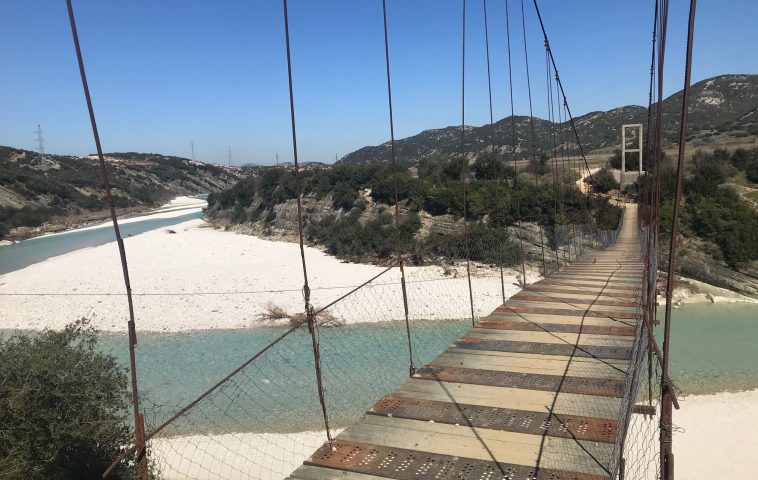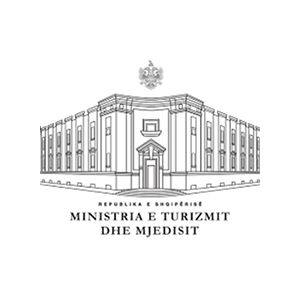European environmental acquis and principles of integrated water resources management in the Albanian perspective.
Albania is the second richest country in Europe in terms of water resources, with a significant water area, calculated as twice the territorial area. The beauties and values of our water resources are invaluable, and it is easy to notice this fact just by looking at the Shushica Valley, located in the Southern Mountain Area in the region of Vlora, with some major sources of groundwater throughout its course.
Shushica River, part of the Vjosa Basin, has permanent water inflows and is one of the most important rivers of this basin. The waters of Shushica, after joining those of Vjosa, continue to flow for another 25 km, leading to the Adriatic Sea. Starting from the source to the outflow, during its course the river passes into several inhabited centers. So, it can be stated that Shushica river is a very important ecosystem for the communities of this area, who use it for drinking water, irrigation, cereal milling and processing, fishing, entertainment, but not for sailing.
Representatives of active civil society organizations, the media and community in the Vjosa Basin, point out several problems in this river, from the lack of a management plan for the Vjosa River Basin, erosion and urban waste dumping. They state that the quality of water and “health” of this river ecosystem is average, influenced by the mismanagement not only of water resources, but of the entire watershed. It is not difficult to distinguish waste along the sides and banks of the river debris which float or slide along the banks reaching and floating on the surface of the stream. The waste ends up in the river and has the Adriatic Sea as its destination. An old remaining problem is the wastewater of inhabited centers that flows into streams or watercourses and ends up in the waters of this river.
The Water Framework Directive, one of the most important directives of the European Union, lays the foundation for citizens and communities as a driving force in its implementation. But the level of transposition in the Albanian water management legislation remains low, at only 41%; institutions are fragile, and resources are insufficient. In recent years especially, the country is facing the effects of climate change, which have become more visible and affect larger areas of the country, such as in the case of floods. Rising temperatures and declining rainfall have brought milder winters, warmer springs and drier and hotter autumn and summers. Water resources are expected to decrease by 14% by 2050, while the change of precipitation regime will bring a rapid intensity of rain, combined with early snowmelt, caused by rising temperatures in the spring, thus bringing more frequent floods.
Water management policies should be guided by the principles “the polluter pays” and “water is a human right”. Any initiative in the management of natural resources and water should be preceded by the Strategic Environmental Assessment, which is almost not implemented in Albania. Involvement of environmental CSOs in the process of drafting and monitoring management plans is essential. Among the most urgent actions is the determination of the most damaged areas of riverbanks by erosion from gravel extraction or by natural erosion. The establishment of monitoring groups for pollution hotspots along the river should have broad participation with community members to identify cases of illegality and report them to law enforcement agencies.
Residents of the area near the Shushica river say that there is a great damage to the trees along its course, mainly plane and willow trees. A representative of the NGO “Green 2000” says that their damage and the destruction of the natural habitat of vegetation along the river has caused erosion of the shores during the rainfalls of autumn, winter and spring. Neither did the concrete dams stop further erosion.
Increasing pressure on the use of water resources emphasizes the importance of a better management, giving priority to the implementation of sustainable policies, a comprehensive legal framework, and the presence of local and central implementing institutions. It is also considered as an urgent need to use transparent and effective mechanisms for the management of our natural resources, as essential instruments to ensure concrete actions in the conservation of water resources.
The GREEN 27+ Consortium, comprises about 20 environmental organizations across the country, and with the financial support and in cooperation with the SANE 27 Program, Green 27+ is involved in the development of a support program and capacity building for civil society, which aims to support Albania’s EU accession process for Chapter 27, promoting dialogue between government institutions and NGOs on environmental legislation.
Like





